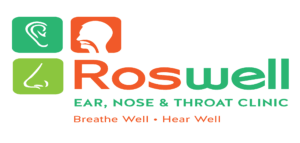Laryngopharyngeal Reflux / LPR /GERD
Gastroesophageal reflux disease (GERD) and laryngopharyngeal reflux (LPR), commonly known as acid reflux, are acute or chronic conditions associated with frequent heartburn, cough, throat clearing, dysphagia or difficulty swallowing, dyspnea or difficulty breathing, choking and/or hoarseness.
Conditions
Gastroesophageal reflux disease, or GERD as it is more commonly known, is a chronic digestive disease that occurs when stomach acid moves back up into your esophagus. This backwash, or reflux, can irritate the lining of your esophagus.
Acid reflux is a common condition but when the symptoms occur or persist more than twice a week you should consult your doctor to see if you have GERD. Most of the time symptoms of GERD can be managed with over-the-counter options but if they are persistent and strong enough to interfere with daily life, prescription medication, or even surgery, may be suggested.
Some patients with GERD may also experience LPR, which occurs as acid from the stomach rises to the esophagus and enters the back of the throat. Patients suffering from LPR often report a bitter taste in their mouth, hoarseness and the feeling that mucus or phlegm is caught in the back of their throat. In some cases, LPR can cause breathing difficulties. LPR is sometimes contributing factor in the development of laryngeal cancer.
Laryngopharyngeal Reflux Treatment
Reflux of gastric acids may produce temporary or chronic irritation of the larynx, esophagus, vocal cords, and throat. Two conditions related to reflux are laryngopharyngeal reflux (LPR) and gastroesophageal reflux disease (GERD). Though similar in origin, each condition has its own symptoms.
GERD is typically a life-long condition, but one that responds well to treatment. LPR doesn’t usually require long-term care, but may take weeks to months before treatment begins to improve its condition. Controlling acid reflux is often the first step of treatment, accompanied with changing behaviors. Since the sensation of throat obstruction is common, alternatives must be adopted as typical throat clearing aggravates the injuries caused by these conditions.
